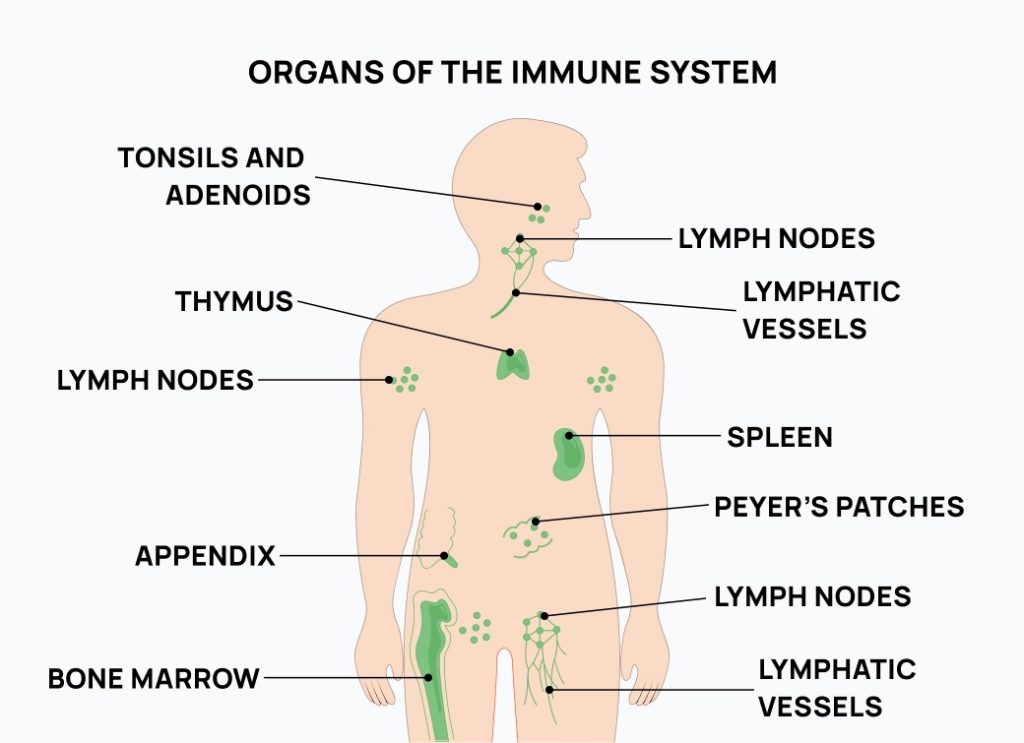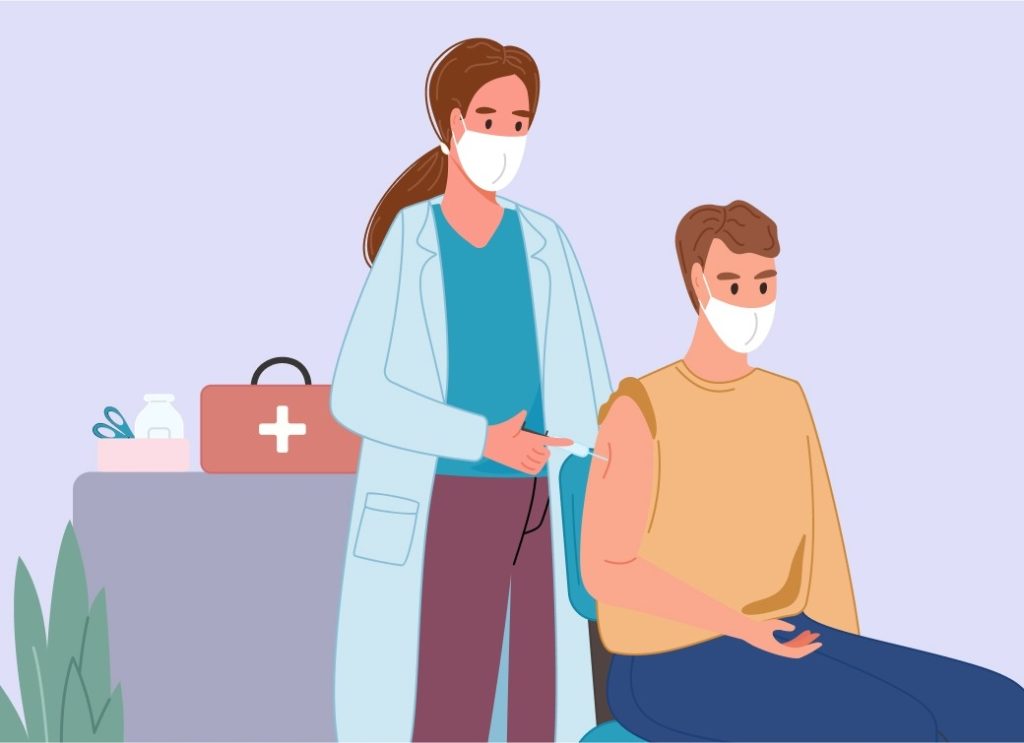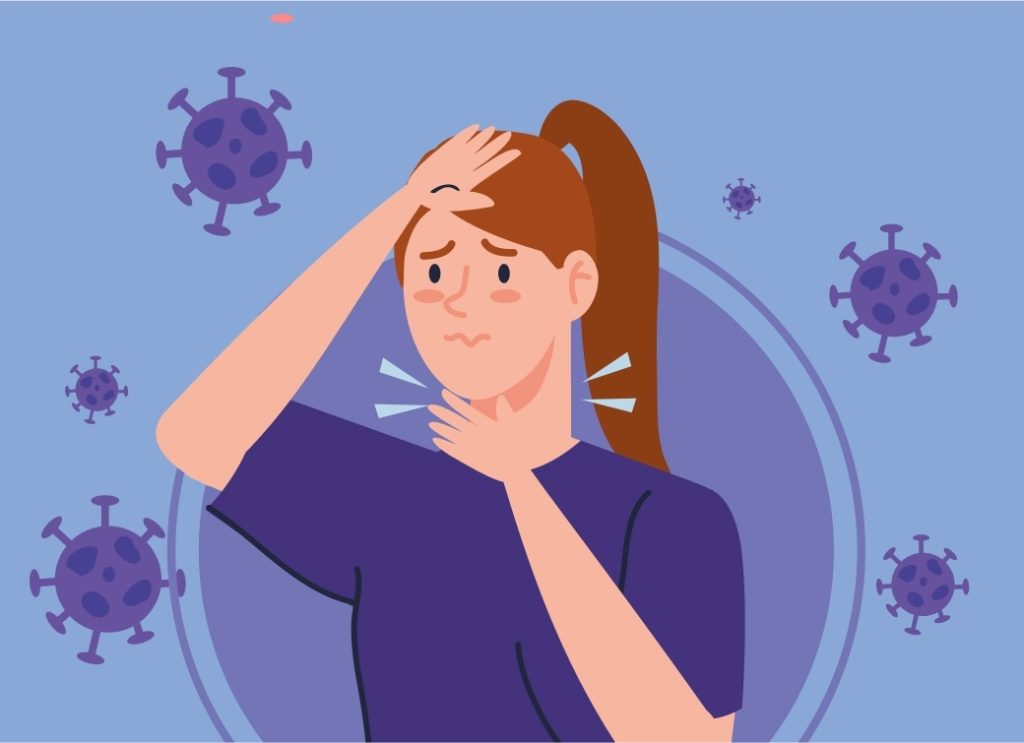With the warm and refreshing spring air every year, comes Pollenocalypse or the evident Pollen allergy — a type of outdoor allergy caused by pollen grains from plants. It is one of the most common outdoor allergies in India affecting between 10% to 40% of the population annually. The major sources of allergens include pollen grains, fungal spores, foods, insects, and dust mites. Symptoms include sneezing, runny nose, itchy eyes, and congestion.
If you feel the allergy season is getting longer and more intense over time – you are not wrong! Allergy risk is getting worse over time. The length and intensity of pollen seasons are growing, largely due to climate change. The trend is real and as the planet continues to warm up, there seems to be more misery in store.
Our immune system plays a vital role in fighting against pollen allergies and seasonal cases of flu. When a person is exposed to allergens such as pollen or viruses that cause seasonal flu, the immune system produces antibodies to fight against harmful pathogens and foreign invaders.
In this article, we will explore the role of immunity in the body, how to boost immunity, and diseases to watch out for during changes in weather and flu season!
The Defender Within: Unraveling the Mysteries of the Immune System
The immune system is a complex network of cells, tissues, and organs that work together to protect the body from harmful pathogens and foreign invaders. Without this system, humans would be defenceless against a barrage of infectious diseases that could quickly wipe out entire populations. But did you know that the immune system is not infallible? Despite its incredible capabilities, the immune system can sometimes fail to recognize and destroy dangerous invaders. This can lead to a host of health problems, including autoimmune diseases, allergies, and even cancer.
Despite these challenges, the immune system has evolved to be incredibly powerful and efficient. One of the key components of this system is the microbiota – the trillions of bacteria that live in and on the human body. These bacteria play a crucial role in training and developing the immune system, helping it to recognize and respond to a wide range of threats. In turn, the immune system helps to regulate the growth and activity of these bacteria, creating a delicate balance that is essential for maintaining good health.
But the human immune system is not just a passive defence mechanism. It is also capable of learning and adapting to new threats, producing a wide range of antibodies and other immune cells that can target even the most elusive pathogens. And despite the challenges posed by emerging diseases and antibiotic-resistant bacteria, researchers continue to make incredible strides in understanding the immune system and developing new treatments and therapies.
As we continue to study and learn about the human immune system, we are constantly unlocking new secrets and discovering new ways to harness its power. Whether it is through groundbreaking research, cutting-edge treatments, or simple trivia and facts, there is always something new to learn about this incredible system that keeps us healthy and thriving.

Understanding the Defences: The Role of Immunity in the Body
The immune system is composed of several different types of cells, including white blood cells, antibodies, and natural killer cells. These cells work together to identify and neutralize harmful pathogens and abnormal cells. The immune system also has a memory, which allows it to recognize and destroy pathogens that it has encountered before.
The immune system is responsible for several important functions in the body, including:
- Protection Against Pathogens: The immune system is the body’s first line of defence against harmful pathogens such as bacteria, viruses, and parasites. White blood cells, such as T cells and B cells, recognize and neutralize these pathogens, preventing them from causing illnesses and infections.
- Destruction of Abnormal Cells: The immune system also recognizes and destroys abnormal cells, such as cancer cells. Natural killer cells identify and destroy these cells before they can become cancerous.
- Immune Memory: The immune system has a memory, which allows it to recognize and neutralize pathogens that it has encountered before. This memory is what allows vaccines to be effective. Vaccines contain weakened or dead pathogens that stimulate the immune system to produce antibodies. If the body encounters the same pathogen again, the immune system is able to recognize and destroy it before it can cause an infection.
Doubling up on Defences: Boosting Immunity

The immune system is complex and involves several different factors. There are several things that individuals can do to support their immune system and improve their overall health.
- Healthy Foods: A healthy diet is essential for maintaining a strong immune system. Eating a diet rich in fruits, vegetables, whole grains, and lean proteins provides the body with the nutrients it needs to function properly. Some nutrients that are particularly important for immune function include vitamin C, hence including citrus fruits like mosambi, oranges, lemon, amla, guava, and kiwi et can be consumed. A shot of amla or added to the diet every day for the flu season. Turmeric, which contains curcumin, is also known for its immune-boosting properties and can be added to food or consumed as a supplement. Consuming foods with probiotics, like yoghurt, can also help boost immunity.
- Vaccines: Vaccines are an effective way to prevent various diseases and health conditions, including influenza, pneumonia, allergies and more. In the case of influenza, vaccines work by stimulating the immune system to produce antibodies that recognize and fight against the influenza virus. Vaccines for pneumonia work in a similar way, by stimulating the immune system to produce antibodies against the bacteria that cause pneumonia. Allergy vaccines, also known as immunotherapy, work by exposing the immune system to small amounts of allergens, which helps the body gradually build up immunity to the allergen. Vaccines can help prevent the spread of certain diseases, reduce the risk of infection, and help maintain overall health
- Get Enough Sleep: Sleep is essential for overall health, and it is particularly important for immune function. Lack of sleep can weaken the immune system and increase the risk of infections.
- Exercise Regularly: Regular exercise has been shown to improve immune function. Exercise helps to increase blood flow and circulation, which can improve the delivery of immune cells to different parts of the body. It is recommended that individuals engage in moderate exercise for at least 30 minutes a day, most days of the week.
- Manage Stress: Chronic stress can weaken the immune system and increase the risk of infections. Finding ways to manage stress, such as through meditation, yoga, or deep breathing, can help to support immune function.
- Quit Smoking: Smoking can weaken the immune system and increase the risk of infections. Quitting smoking can improve overall health and support immune function, especially during the flu season when the respiratory system is under duress.
Diseases to Watch Out for During Changes in Weather and Flu Season
The changing of seasons can increase the risk of certain illnesses and infections. During the fall and winter months, the risk of colds, flu, and other respiratory infections increases. In addition, changes in temperature and humidity can also increase the risk of certain illnesses.
- Influenza (flu): The flu is a highly contagious respiratory illness caused by the influenza virus. Symptoms include fever, cough, sore throat, body aches, and fatigue. The flu can be especially dangerous for young children, the elderly, and people with weakened immune systems. The flu vaccine can help prevent the flu and reduce the severity of symptoms if contracted. Protective immunity against the flu develops about 1 to 2 weeks after vaccination and can last up to a year. In the case of the common cold, the body develops immunity to the specific strain of the virus that caused the infection but not to other strains.
- Common cold: The common cold is a viral infection of the upper respiratory system. Symptoms include cough, runny nose, sore throat, and congestion. While the common cold is usually mild, it can lead to more serious respiratory infections in certain people, such as those with asthma.
- Allergies: Allergies can be triggered by changes in weather and can cause symptoms such as sneezing, runny nose, itchy eyes, and congestion. Allergies can be caused by pollen, mould, dust, and other environmental factors. Allergies occur when the immune system overreacts to a harmless substance, such as pollen or pet dander. Allergies can weaken the immune system and increase the risk of secondary infections, such as sinusitis or ear infections. The duration of immunity varies depending on the type of allergy and varies from a few weeks to a lifetime.
- Asthma: Asthma is a chronic lung disease that can be triggered by changes in weather and environmental factors. Symptoms include wheezing, coughing, and difficulty breathing. Asthma can be managed with medication, but it can be life-threatening if left untreated. Asthma is a chronic respiratory condition that can be triggered by allergens, exercise, or other irritants. Asthma can weaken the immune system and increase the risk of secondary infections such as pneumonia. The duration of immunity in asthma depends on the type of asthma and the severity of the symptoms.
- Pneumonia: Pneumonia is an infection of the lungs that can be caused by viruses, bacteria, or fungi. Symptoms include fever, cough, chest pain, and difficulty breathing. Pneumonia can be especially dangerous for young children, the elderly, and people with weakened immune systems. The duration of immunity depends on the type of pneumonia and the individual’s immune system. In general, protective immunity against bacterial pneumonia lasts for several years, while immunity against viral pneumonia is shorter.
- Strep throat: Strep throat is a bacterial infection of the throat that can be spread through coughing and sneezing. Symptoms include sore throat, fever, and swollen lymph nodes. Strep throat can be treated with antibiotics. The duration of immunity against strep throat depends on the type of strep bacteria and the individual’s immune system. In general, if treated properly, immunity against strep throat can last for several years.

To prevent these diseases, it is important to practice good hygiene, such as washing your hands frequently, covering your mouth and nose when coughing or sneezing, avoiding close contact with sick people, and staying home if you are sick. Additionally, getting vaccinated for the flu and pneumonia can help prevent these diseases.
Conclusion
The immune system is a complex network that protects the body from harmful pathogens and foreign invaders. The importance of the immune system cannot be overstated, as it plays a crucial role in maintaining good health and preventing diseases. The immune system can be supported through a healthy diet, regular exercise, getting enough sleep, managing stress, and quitting smoking. During the flu season and changes in weather, it is important to take extra precautions to avoid falling ill. Employers should also take measures to prevent the spread of illness in the workplace, such as encouraging sick employees to stay home, providing flu vaccinations, and implementing hygiene protocols. With continued research and advancement in the field of immunology, we can better understand the immune system and find new ways to improve our defences against illnesses and diseases. We can lead healthier and happier lives by taking care of our bodies and supporting our immune systems.













Share this article